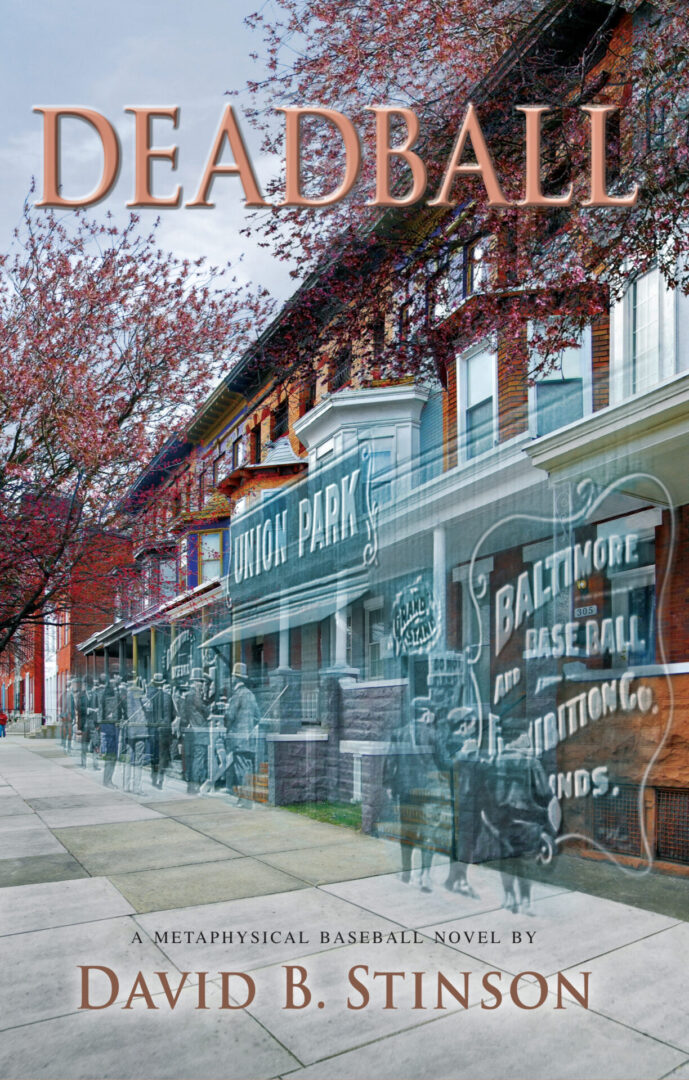Baseball was first played at the intersection of Grand Boulevard and Dodier Street in St. Louis, Missouri, in 1867. Originally was called Grand Avenue Ball Grounds, the ballpark name was changed to Sportsman Park in 1876.
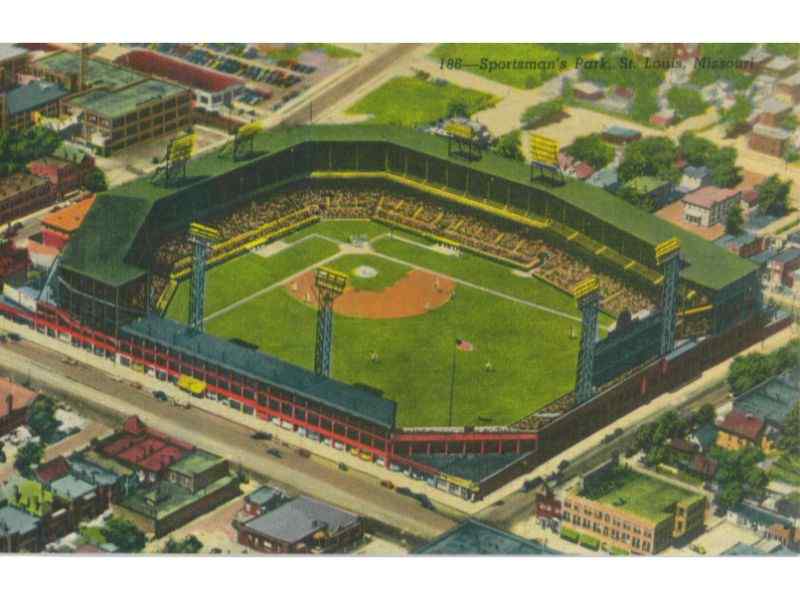
Several different variants of Sportsman Park existed over the years. Originally the home of the National League St. Louis Cardinals, the ballpark also was the home of the American League St. Louis Browns from 1920 until 1953.
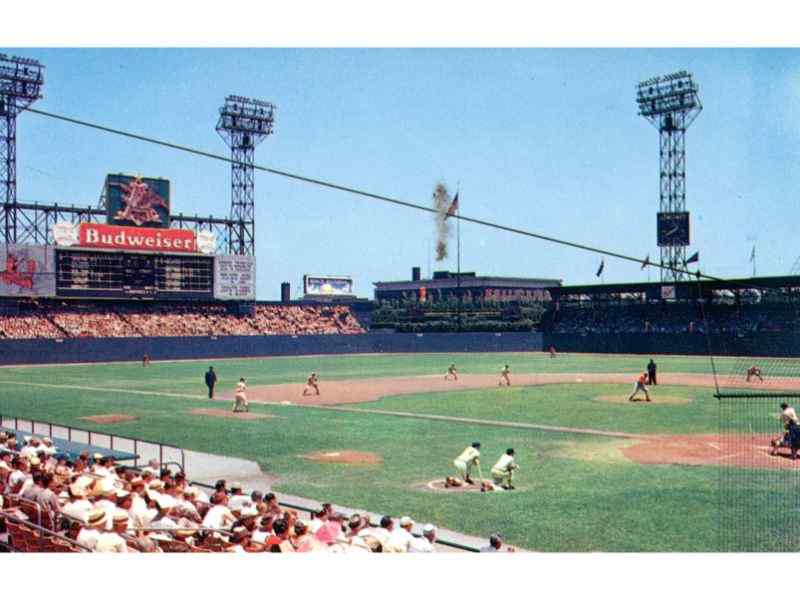
Anheuser-Busch purchased the Cardinals and Sportsman Park in 1953 and that same year renamed the ballpark Busch Stadium. The Cardinals departed Sportsman Park in June 1970 and inaugurated the new, multi-purpose Busch Stadium later that month.
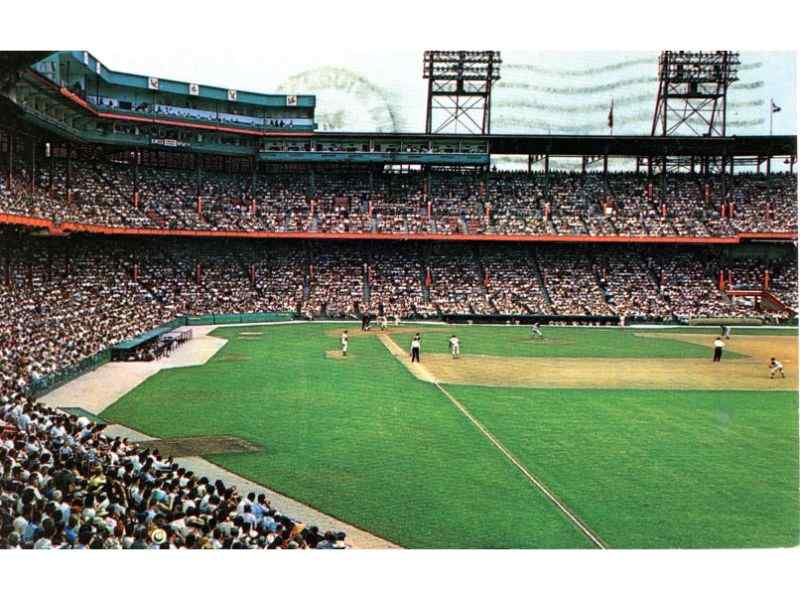
Located northwest of downtown, the Herbert Hoover Boys and Girls Club now sits on the site.
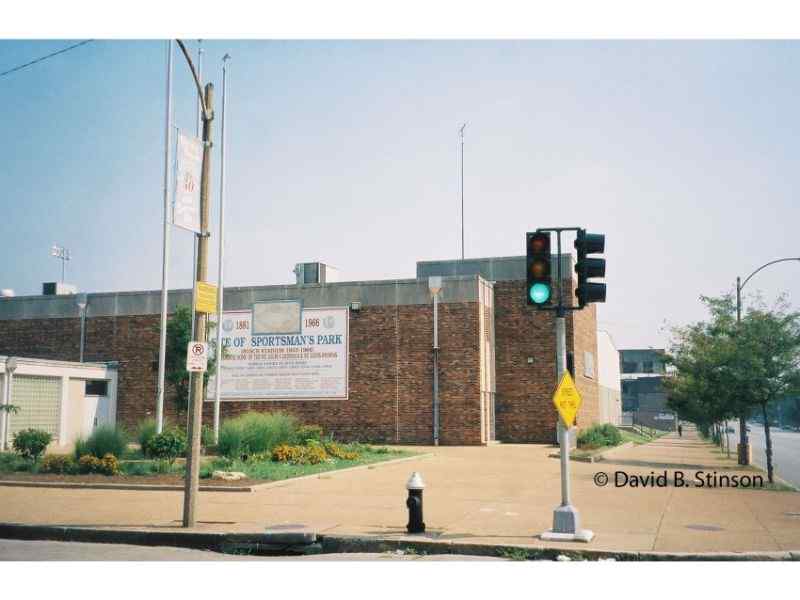
The Boys and Girls Club is located along the former first base side of the ballpark to the right field pavilion.
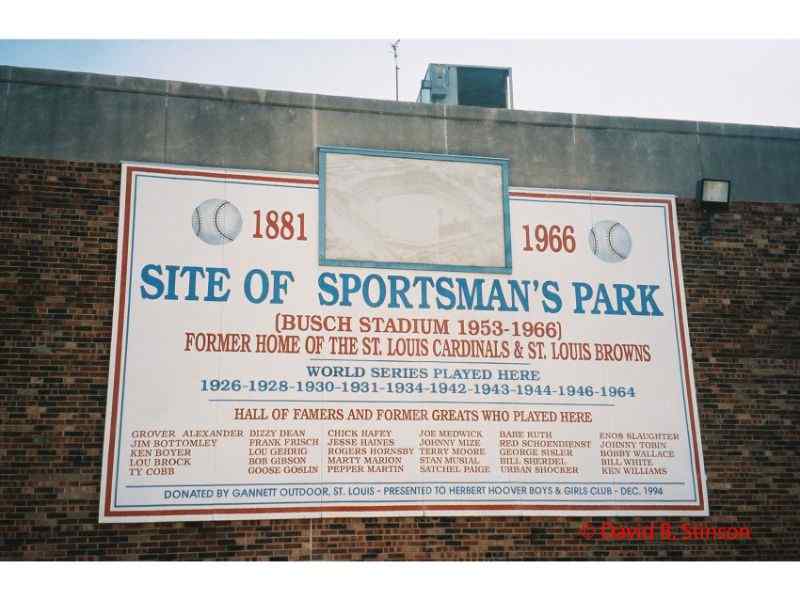
Although all vestiges of the ballpark are long gone, the former left field remains an athletic field at the Boys and Girls Club.
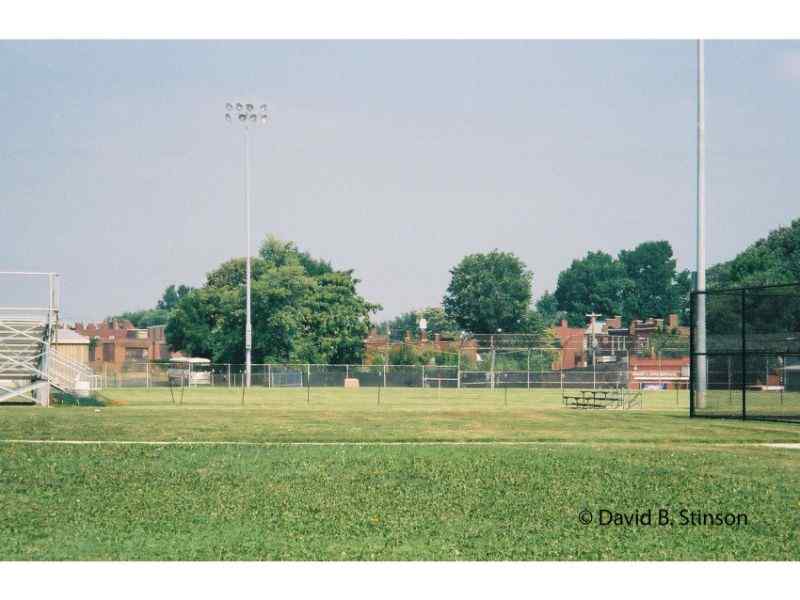
The site of center field is now occupied by tennis courts.
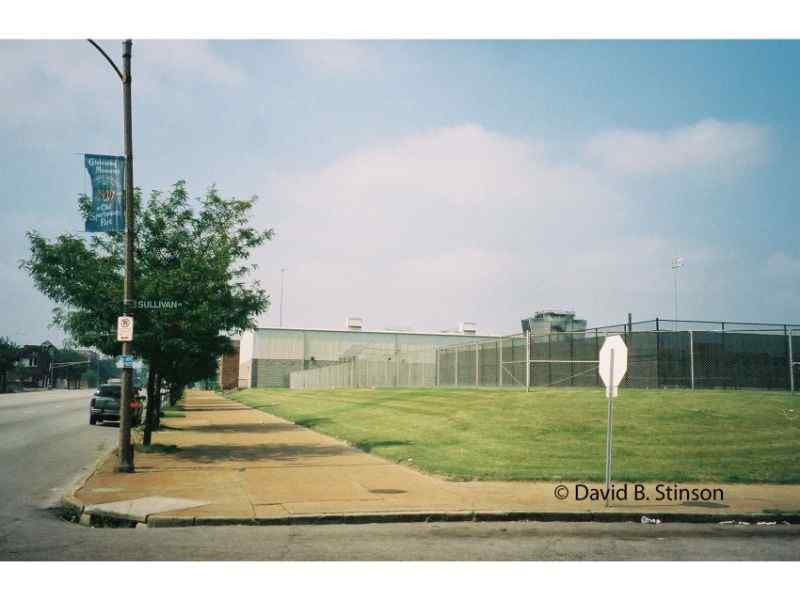
Several building surrounding the site remain from the time of Sportsman Park. Across Sullivan Avenue opposite center field is the former Speedwa School building with a billboard on its roof that was once visible out past center field.
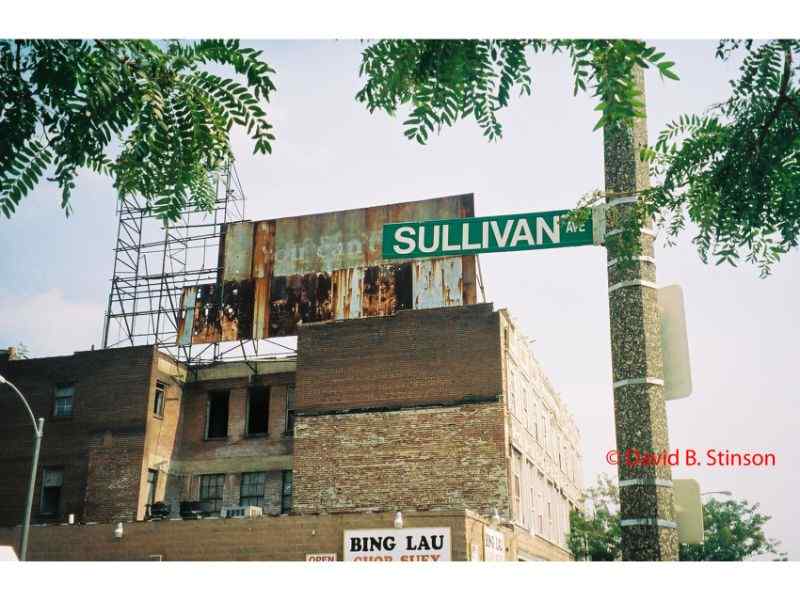
The Speedwa School building also is visible in the postcard reproduced above.
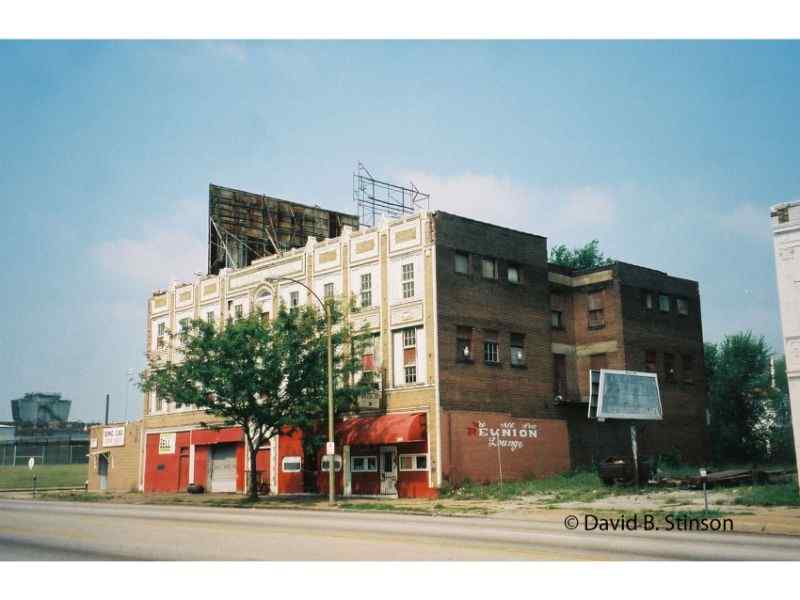
Across the street from the former Speedwa School, at 3108 North Grand Street, is a five-story brick building, currently the headquarters of World Impact of St. Louis. That building, which used to house a YMCA, looms beyond the center field wall in vintage photographs of Sportsman Park.
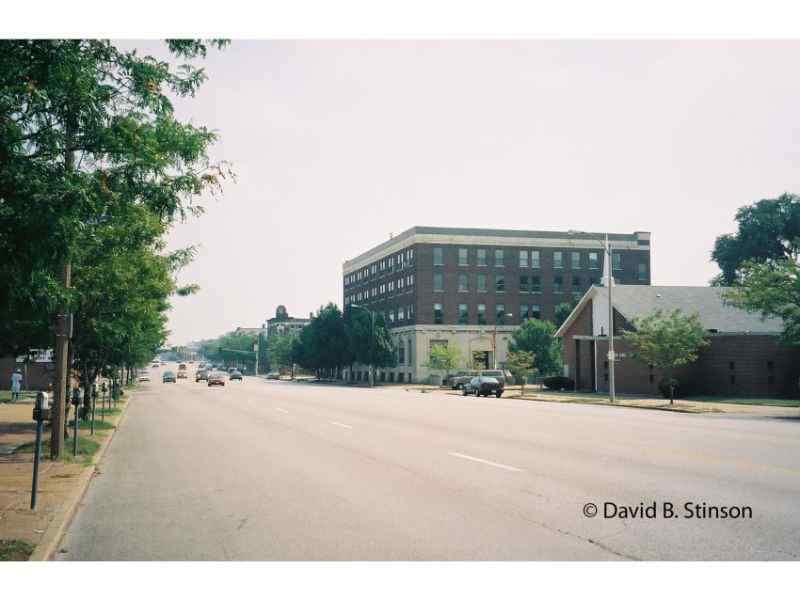
Another building that remains at the site today (and is visible in the postcard above) is the Carter Carburetor Corporation factory, located on Dodier Street opposite the first base line.
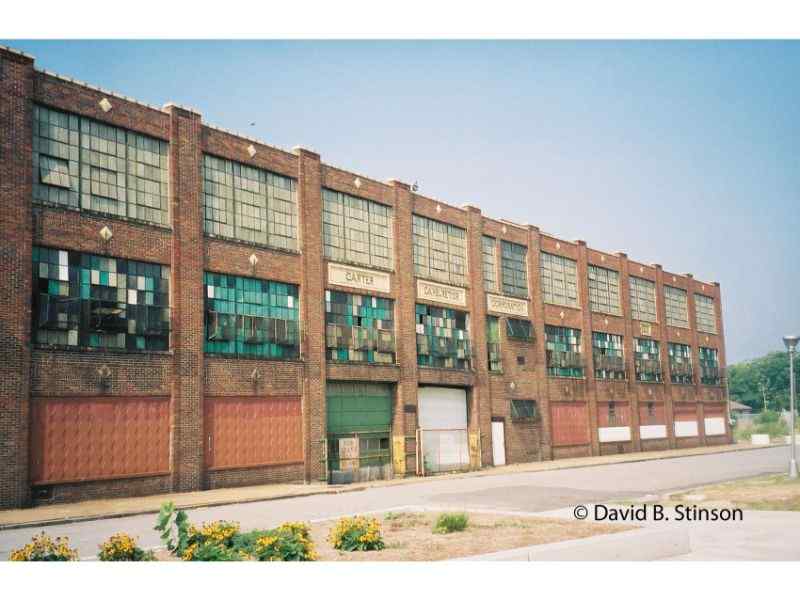
Although the ballpark itself may be gone, enough remains of the neighborhood surrounding the park, as well as the former left field, to make a trip to the corner of Dodier and Grand worthwhile for anyone interested in lost ballparks and baseball’s past.
